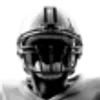Denver Broncos: nfl FUTURES & BETTING ODDS

DEN
Denver Broncos
0-0
Roster
Luke Wattenberg

Marvin Mims

Mitchell Fraboni

Jalen Virgil

Brandon Johnson

Ja'Quan McMillian

Elijah Garcia

Lucas Krull

Jordan Jackson

Matt Henningsen

Tyler Badie

Delarrin Turner-Yell

Drew Sanders

Eyioma Uwazurike

Damarri Mathis

Greg Dulcich

Nik Bonitto

Jonas Griffith

Zach Wilson

Calvin Throckmorton

Will Sherman

Ronnie Perkins

Michael Bandy

Jaleel McLaughlin

Devaughn Vele

Nick Gargiulo

Kris Abrams-Draine

Audric Estime

Troy Franklin

Jonah Elliss

Bo Nix

Durell Nchami

Demontrey Jacobs

Alex Palczewski

Devon Key

Nate Adkins

Thomas Incoom

Art Green

Keidron Smith

Johnny Lumpkin

Tanner McCalister

Reese Taylor

Alex Forsyth

JL Skinner

Riley Moss

Tremon Smith

Zach Allen

Samaje Perine

Fabian Moreau

D.J. Jones

Mike McGlinchey

K'Waun Williams

Riley Dixon

Wil Lutz

Phillip Dorsett

John Franklin-Myers

Josh Reynolds

Ben Powers

Ben Niemann

Mike Purcell

Angelo Blackson

Tyler Lancaster

Dwayne Washington

Courtland Sutton

Tim Patrick

Garett Bolles

Cam Fleming

Michael Burton

Brandon Jones

Baron Browning

Justin Strnad

Quinn Meinerz

Javonte Williams

Jonathon Cooper

Pat Surtain

Caden Sterns

Matt Peart

Malcolm Roach

Adam Trautman

Levi Wallace

Ben DiNucci

Rashard Lawrence

Cody Barton

P.J. Locke

Alex Singleton

Lil'Jordan Humphrey

Jarrett Stidham

Quinn Bailey

Sam Mustipher

David Sills




